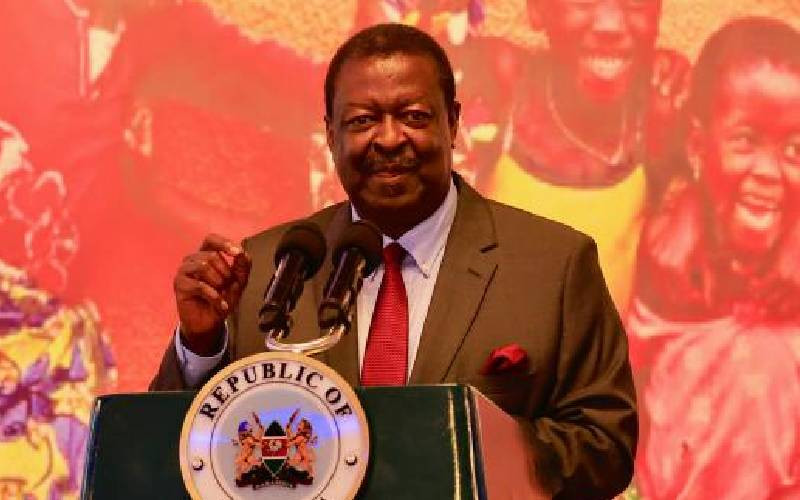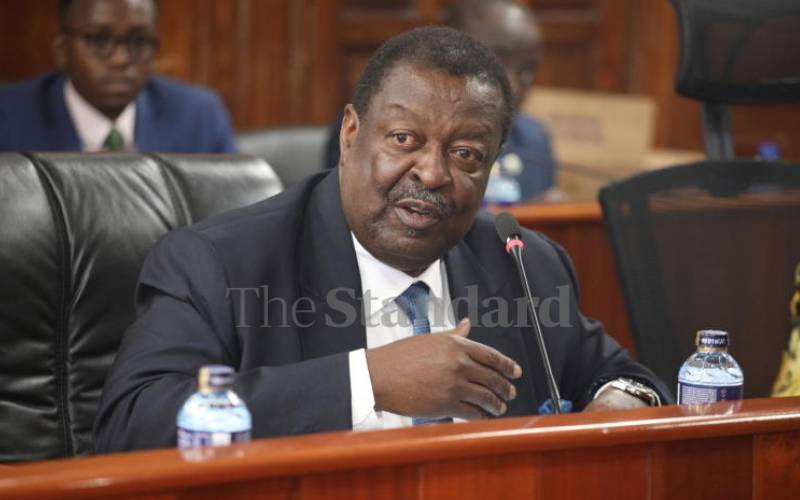When President Uhuru Kenyatta berated top officials for failure to fight corruption, I asked myself, what exactly is wrong with Kenya, and Kenyans? Yes, corruption is alive and well. There are two types of corruption. There is the type that loots Sh300 billion from the budget through procurement deals and through outright, impunity-dripping theft. Then there is the rather petty, but even more dangerous type where people paid to serve the public pocket between Sh50 and Sh5,000 to bend the rules for an equally corrupt public. It indirectly kills thousands every year through State neglect.
In the first type, Kenyans point out priorities that would improve health, education, and standards of living. Then when it comes to budgeting, tenderprenuer sources in State corporations take advantage of the importance of projects being budgeted for to make money that only an over-the-hill psycho should ever want to have in one lifetime.
So they invite bids and genuine suppliers and the tenderprenuers apply. What it does for tenderprenuers is that they get inside information to price their bids and package them in a winning fashion. Sometimes when the bids are opened, it turns out that even with insider information, the tenderprenuer’s bid is not always the best. That’s how you end up with so many cases of people who clearly did not offer the best bid getting tenders anyway, and then follows the legion complaints to the Procurement Oversight Authority and the attendant litigation.
The second type of corruption is mostly inspired by the first. Junior officers of the State, all the way to the top, create a machinery where Sh50 collected all over the country reach the top echelons of State machinery in millions of shillings. This helps those who are well-connected to buy survival and clout. These networks are so entrenched that one appointee to the anti-graft agency, national audit office or anywhere, cannot destroy them. But all it takes is political will to break them.
If I was President, I would first place a call to the director of intelligence and ask him over for extended working lunch. Then I’d demand ten files of real names of people siphoning public funds through tenders and handed-above bribes. I’d also want to know who among them gets the guts to steal. I’d demand the dossier, complete with recommendations on how to fix the thieves, on the strength of the unaudited intelligence budget. Then I’d ask the Auditor General to do me a similar friendly personal favour; to tell me where the top ten heists took place last year, down to a department. I’d do the same with all those others who are key to the war against graft. From where I sit, there is no doubt that files so requested would form a pattern. Some would be names in multiple reports and one would probably know where to find the evidence. I’d also get to know who may be claiming to be my friend but working against my vision.
This first step would help us put real names on the enemy. From there, a multi-pronged strategy to keep them off the till should be launched. Political isolation to ensure that none of them uses proximity to power to continue stealing. If I find myself in the mood to lambaste someone, I’d hurl barbs at the thieves, and never at those I should work with to fight them. But I’m just a meat-wrapper, it’s not my call to run the State.
The corollary, however, is that the State machinery is powerful, if strategically deployed. If you target 10 thieves, it is easy to even find evidence to nail them legally, and keep those helping them away from the till without firing a single human being.
Get 10 culprits and make an example of them, and the tenderprenuer whole underworld will come tumbling down like a house of cards. Fight, Mr President, fight.
 The Standard Group Plc is a
multi-media organization with investments in media platforms spanning newspaper
print operations, television, radio broadcasting, digital and online services. The
Standard Group is recognized as a leading multi-media house in Kenya with a key
influence in matters of national and international interest.
The Standard Group Plc is a
multi-media organization with investments in media platforms spanning newspaper
print operations, television, radio broadcasting, digital and online services. The
Standard Group is recognized as a leading multi-media house in Kenya with a key
influence in matters of national and international interest.
 The Standard Group Plc is a
multi-media organization with investments in media platforms spanning newspaper
print operations, television, radio broadcasting, digital and online services. The
Standard Group is recognized as a leading multi-media house in Kenya with a key
influence in matters of national and international interest.
The Standard Group Plc is a
multi-media organization with investments in media platforms spanning newspaper
print operations, television, radio broadcasting, digital and online services. The
Standard Group is recognized as a leading multi-media house in Kenya with a key
influence in matters of national and international interest.








